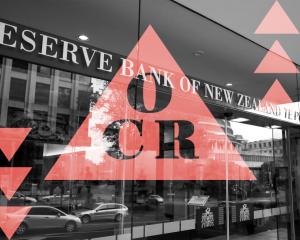Economic Development Minister Steven Joyce has confirmed he persuaded would-be participants in a campaign fighting for lower internet prices not to take part.
The Coalition for Fair Internet Pricing claims a recent Government proposal for internet pricing sets the price for copper-based broadband services too high and will result in a windfall profit of $600 million to lines company Chorus, something they say amounts to an unfair tax.
Consumer NZ boss Sue Chetwin who is leading the group last week said leading telecommunications companies and business groups were supportive of the group but "came under considerable political pressure" not to take part.
A telecommunications industry source said both Vodafone and 2degrees had been involved in the coalition but had withdrawn suddenly in recent days.
A spokesman for Mr Joyce said the Economic Development Minister was advised of the campaign about a week before its launch on Thursday.
"He talked either specifically or as part of other conversations to three groups that he understood had been approached to be part of it because he wanted to be sure they were aware of the reasoning behind the Government's proposal.
"They indicated they would make final decisions whether to participate in due course. He understands that none of the three ended up participating. He takes that to mean the campaign tends to fall apart whenever the other view has a chance to be represented."
Vodafone said last week it had been working with the coalition, and was closely aligned with its aims, but had chosen not to take part. It denied any pressure from the Beehive, as did 2Degrees.
Federated Farmers and the School Trustees Association both confirmed they had been in talks with the coalition but also decided against participating. Again, both said there was no political pressure behind their decisions.
At issue is the price other companies and ultimately consumers pay for internet access over the old copper wire telephone network owned by former Telecom network business Chorus.
The Commerce Commission, which regulates wholesale internet pricing, has proposed it should be cut by as much as a third next year.
But Communications Minister Amy Adams recently issued a discussion document suggesting a smaller cut, based on the rationale that if copper access was too cheap customers would prefer it over services provided by Chorus using the new fibreoptic network being rolled out under the Government's $1.5 billion ultrafast broadband (UFB) policy.
The coalition's launch comes as telecommunications companies jockey for position for slices of the 700 megahertz radio spectrum which will be auctioned soon. The spectrum previously carried analog television signal but is now sought after as an ideal frequency for fast 4G mobile data services.
The telecommunications industry insider spoken to by the Herald believed the upcoming auction may explain "the big guys"' reluctance to "get into an argument with the Government about a copper tax".
Prime Minister John Key last week said the Commerce Commission was "interpreting the law incorrectly" with its price proposal which could send Chorus broke and stall the UFB rollout.
This morning he told TVOne's Breakfast that a draft recommendation that copper broadband prices should be dropped by 25 per cent was "completely off the wall".
"No one really believes when you look at the legal interpretation of that, that that's the right way," he said.
Labour's communications spokeswoman Clare Curran said the Prime Minister was now "intervening directly in a regulatory process to prop up Chorus who say they can't lay the fibre for the price negotiated".
Mr Joyce's strong arming of would-be participants in the coalition was clearly a desperate bid to keep the UFB roll out on track.
"Steven Joyce is responsible for the original UFB contract with Chorus, he's responsible for the legislation that put in place the Commerce Commission review of the price of copper. The responsibility for the debacle that the Government has now found itself in is firmly on his shoulders."
- Adam Bennett of the New Zealand Herald












